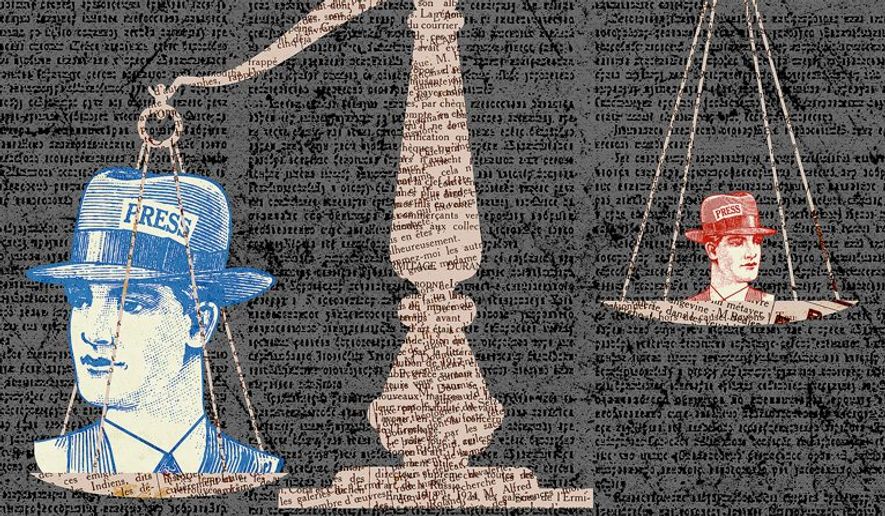OPINION:
I confess to a certain self-interest in today’s column. The media, especially newspapers, are in trouble. Conservatives like myself have been relentless in attacking their collective bias over the years, but as more of them fold or reduce staff, it is crucial the institution be saved.
Margaret Sullivan, a columnist for The Washington Post, has suggested that federal bailout money should be allocated to newspapers. That is an amusing suggestion since the world’s richest man, Amazon’s Jeff Bezos, owns The Washington Post. He could infuse some of his own money to prop up that reliably liberal paper.
In an age when fewer schoolchildren are taught civics, it is useful to recall that the press is the only profession mentioned in the U.S. Constitution’s First Amendment, which specifically forbids Congress from “abridging” freedom of the press.
The Founders were aware of newspapers’ tendency to print inaccurate, even outrageous, stories, but as Benjamin Franklin noted: “I am … for freedom of the press, and against all violations of the constitution to silence by force and not by reason the complaints or criticisms, just or unjust, of our citizens against the conduct of their agents.”
Newspapers then — and one could argue since, along with modern television — have been full of factual errors, innuendo and slanted coverage (check out the corrections section of The New York Times over the years, and those are only the mistakes they admit to), but no country has a freer press than the United States. Notice that the first entities totalitarians seek to shut down or take over are newspapers and television stations, which ought to tell us something.
In a lengthy Vanity Fair article titled “Can the News Industry Survive Coronavirus,” Charlotte Klein, quotes New York Times media columnist Ben Smith, who advocates “a painful but necessary shift” for saving the news business.
Mr. Smith writes, “Abandon most for-profit local newspapers whose business model no longer works, and move as fast as possible to a national network of nimble new online newsrooms.”
Facebook has pledged $100 million to help struggling news outlets weather the financial storm caused in part by advertisers not buying ads because of the coronavirus pandemic.
Financial subsidies are only a partial solution, like quitting smoking but refusing treatment when diagnosed with lung cancer. The real problem for the major media is the perception that their reporters are biased. It doesn’t matter how many times they deny their biases or the frequency with which it’s pointed out to them, especially by conservative organizations. The point is that as in any business if customers aren’t buying your product, denying the reason why only prolongs your company’s downfall.
A 2018 Columbia Journalism Review story reported on a Knight Foundation-Gallup Poll: “A majority of those who were surveyed said they had lost trust in the media in recent years, and more than 30 percent of those who identified themselves as being on the conservative end of the spectrum said they had not only lost faith in the media, but they ’expect that change to be permanent.’ According to a separate Gallup poll from earlier this year that tracked trust in major institutions, newspapers and television news were among the lowest, exceeded only by Congress.”
Among the solutions would be for the major media to address the perceived bias by including more conservatives and serious religious people on their staffs as part of “diversity” campaigns. No industry that ignores the concerns of large numbers of the public can long endure. It is vital to a free society, as the Founders believed, that a vibrant, free and, yes, responsible press endure, but the media can only save itself. That salvation will come, if it comes at all, not through financial aid alone, or even mainly, but by media owners coming to their senses and honestly addressing the concerns of people who no longer believe their message.
• Cal Thomas, a nationally syndicated columnist, is the author of “America’s Expiration Date: The Fall of Empires, Superpowers and the United States” (HarperCollins/Zondervan, January 2020).




Please read our comment policy before commenting.